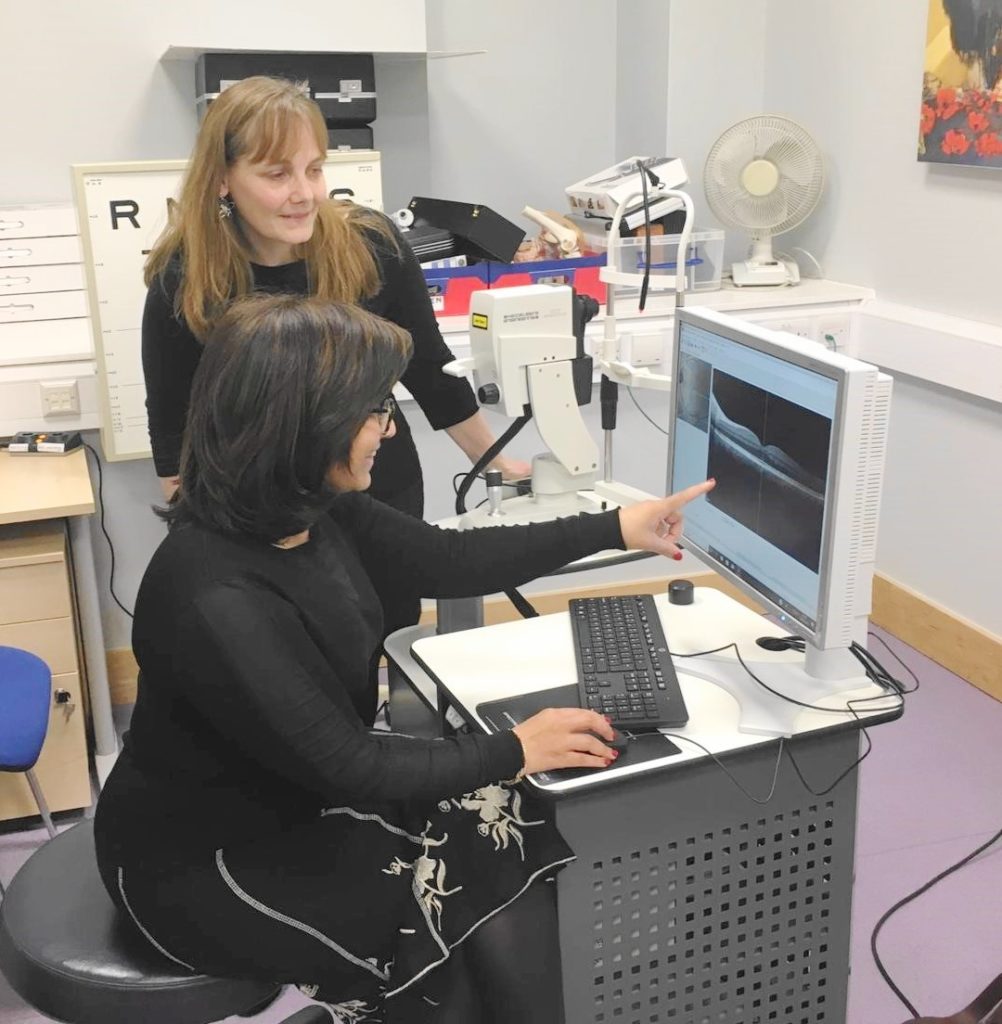 Hemel Hempstead, United Kingdom – Heidelberg Engineering has provided a SPECTRALIS OCT to the low vision service at the Royal National Institute of Blind People (RNIB) in London on permanent loan.
Hemel Hempstead, United Kingdom – Heidelberg Engineering has provided a SPECTRALIS OCT to the low vision service at the Royal National Institute of Blind People (RNIB) in London on permanent loan.
“The low vision service at RNIB was set up to raise awareness of the importance of good quality integrated low vision services to people who have vision that is not correctable with contact lenses or spectacles”, explains Dr Louise Gow, Specialist Lead for Eye Health, RNIB. “It does this by providing integrated optometric low vision and rehabilitation services to people in Camden and Islington evidencing that it is possible to provide this level of service in a cost-effective way within the community.”
Until now, the RNIB low vision service in London did not have an OCT and Dr Gow believes their new SPECTRALIS will improve the patient experience –
“Patients that attend the low vision service are often discharged by the hospital, but we frequently have to refer them back to the hospital when there is a change to their vision. Having an OCT means that we can more accurately assess the causes of reduction in vision and avoid the distress to the patient and the cost of unnecessary referrals. The OCT will clarify the prognosis for patients so that we can tailor the recalls for each individual. This means that those with more rapid change can be seen more frequently and those that have stable eye disease can be given longer recalls.”
“Many of our patients suffer from light sensitivity and the lack of camera flash from the SPECTRALIS makes the experience much more comfortable for them. The eye tracking facility makes the image quality excellent, even with patients who have difficulty maintaining fixation, and given the frail nature of many of our patients this is an excellent advantage. Many of our patients have complex eye conditions that mean dilation in the community is not ideal, but imaging with the SPECTRALIS is possible even with an undilated pupil making it much more appropriate for our patients.”
“We are so very grateful to Heidelberg Engineering for the opportunity to use SPECTRALIS and we hope that we are able to improve not only the experience of individuals within our service but to provide evidence of the importance of OCT imaging beyond screening in primary care and diagnosis in hospital settings.”


